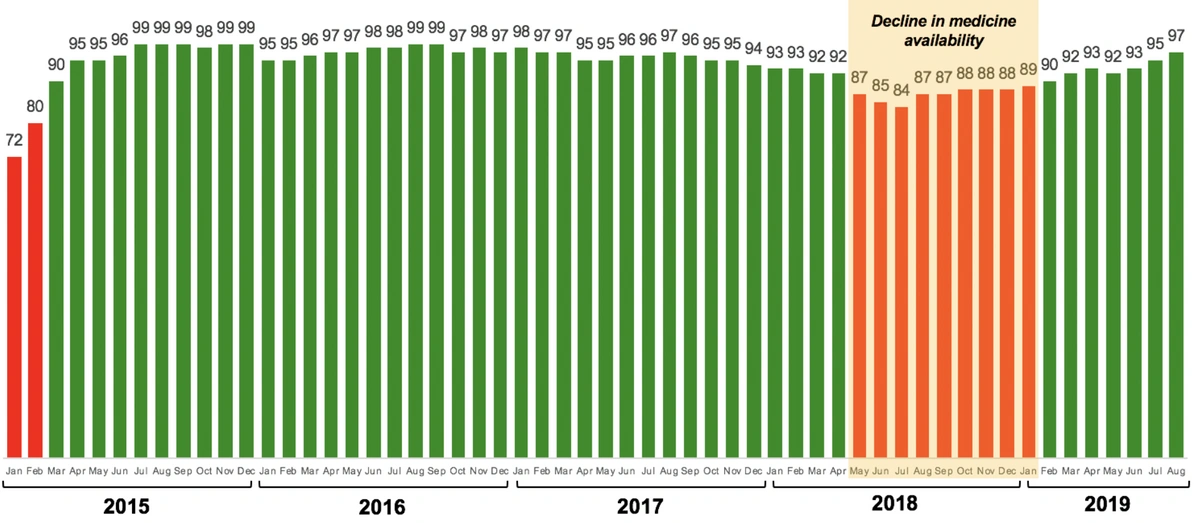
Many people agree that sustainability is the right path to follow, but delivering it is something else entirely.
Sustainability is an important goal in the development space, but it is often elusive in practice. While working with governments, we have seen various ways of delivering sustainability. Raising citizens’ expectations and, counterintuitively, a willingness to commit to unsustainable upfront action, are some of the most effective pathways to it.
Raise citizens’ expectations
Raising the expectations of citizens and people working in government is essential for creating sustainable change. Once citizens’ expectations have shifted, it becomes difficult for governments to slide back.
For example, in Punjab, Pakistan, only 72% of medicines were available in health clinics in January 2015. By August 2015, this figure had risen to 99%. While this change was significant, the mindset shift that followed among the residents and government officials of Punjab was arguably more important.
By July 2018, after a series of new changes, medicine availability fell to around 84%. Many citizens in Punjab noticed this decline in available medicines, leading to a public outcry for improvement. Journalists visited health facilities across the province to report on the issue, while news articles appeared online across various global media outlets.
Crucially, while the 84% figure was far higher than the 72% availability from a few years prior, the steep improvement had raised citizens’ expectations.
Having delivered high rates of medicine availability before, the government of Punjab had the confidence to commit to replicating such results. Applying the same techniques, the government worked to raise medicine availability from 84% to 97% by August 2019.
Source: MEA data. Medicine availability increased at Punjab health clinics in 2019, after citizens refused to accept declining standards.
Be prepared to deliver unsustainable upfront action
Often, unsustainable upfront action is needed to create sustainable long-term results. Particularly when governments have previously invested in similar unsuccessful projects, ministers may be more hesitant to commit funding. In these situations, it is essential to prove that an idea will work up front.
Intensive independent monitoring is an example of a seemingly unsustainable upfront method we have seen governments pursue, in order to deliver long-term sustainability. For instance, by sending out at least one person per month to each health facility across all Pakistani provinces, there was performance tracking of these units. There is a huge financial burden associated with covering travel and hard area costs for independent monitors.
However, independent monitoring is often very popular with our partners, as it enables us to show them data about how well different health facilities are performing. This allows governments to see facilities that are understaffed, gain insights into where greater funding is needed, or understand what facility directors and frontline workers are doing great work.
Ultimately, independent monitoring leads to rapid improvements. This enables the tool to be reduced to a more sustainable level, whereby it is maintained to detect any drops in standards.
Essentials for delivering sustainability
Raising citizens’ expectations and a preparedness for unsustainable upfront action are two effective ways to deliver sustainability. Governments cannot afford to underdeliver, especially if citizens have experienced better standards before. Additionally, proving the effectiveness of an idea up front can be pivotal for convincing partners of a plan.



